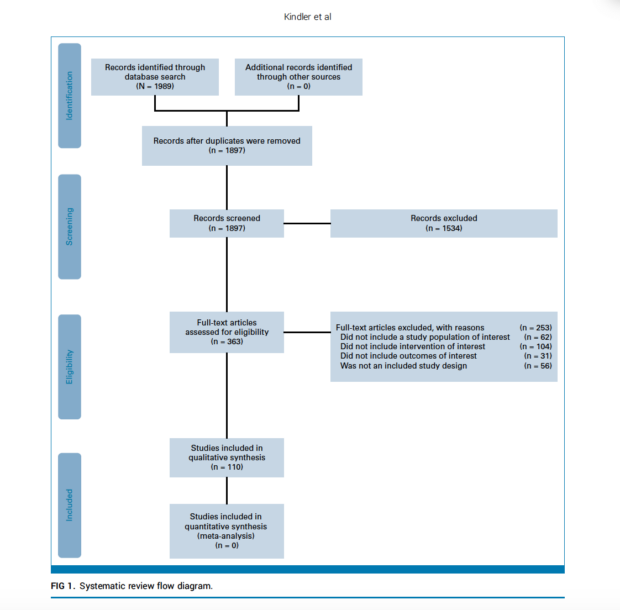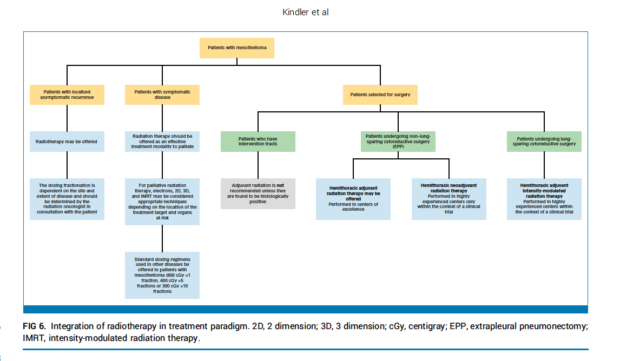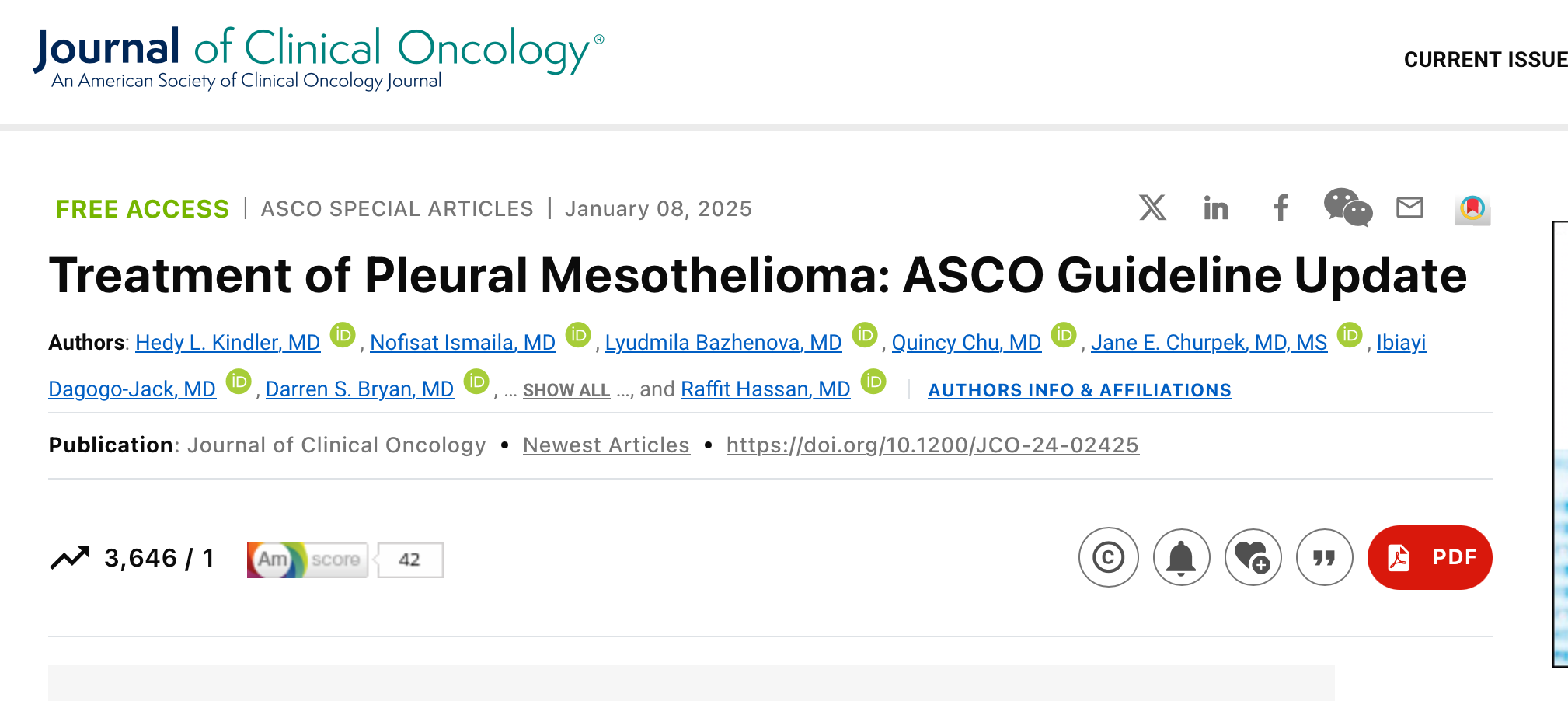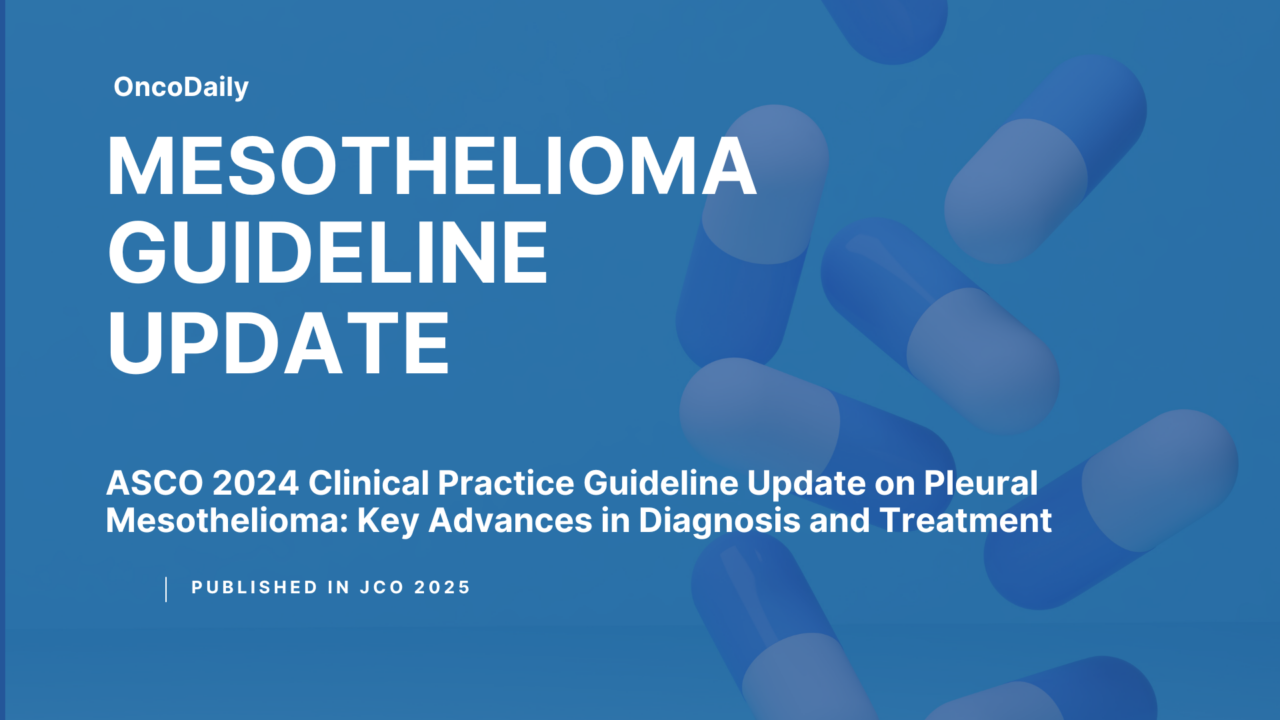The ASCO mesothelioma guideline updates for 2024 introduce advancements in the diagnosis and treatment of pleural mesothelioma (PM). With immunotherapy now a standard of care, refined surgical approaches, updated histopathologic classification, and the integration of genetic testing, these new recommendations aim to improve patient outcomes. This update provides evidence-based guidance on systemic treatment, surgical strategies, and the role of germline testing in managing PM.
ASCO 2024 Clinical Practice Guideline Update on Pleural Mesothelioma: Key Advances in Diagnosis and Treatment
Authors: Kindler, MD; Ismaila, MD; Bazhenova, MD; Chu, MD; Churpek, MD, MS; Dagogo-Jack, MD; Bryan, MD; Drazer, MD, PhD; Forde, MD; Husain, MD; Sauter, MD; Rusch, MD; Bradbury, MB, BCh, MD; Cho, MD, PhD; de Perrot, MD; Ghafoor, MD; Graham, MD; Khorshid, MD, PhD; Lebensohn, MS, CGC; White, BSN, RN, OCN; Hassan, MD.
Published in Journal of Clinical Oncology on Jan 8, 2025
Background
Since the publication of the 2018 ASCO clinical practice guideline on pleural mesothelioma (PM), significant advancements have reshaped the management of this disease. The introduction of immunotherapy, refined surgical strategies, updated histopathologic classification, and the growing role of germline testing have contributed to improved outcomes and a better understanding of disease progression. This mesothelioma guideline update provides evidence-based recommendations regarding the role of surgery, the integration of systemic treatments, histologic criteria for diagnosis, and the necessity of genetic testing for pathogenic germline mutations.

Methods
The guideline was developed by an ASCO-appointed multidisciplinary Expert Panel using a systematic review of the literature published between January 2016 and June 2024. Studies included randomized clinical trials (RCTs), observational studies, and clinical experience with a minimum sample size of 20 patients. The primary outcomes analyzed were overall survival (OS), progression-free survival (PFS), response rates, toxicity, and quality of life (QoL). Evidence quality was assessed using the Cochrane Risk of Bias tool and the GRADE system.
Study Design
A total of 110 eligible studies were analyzed in the new mesothelioma guideline updates, focusing on key therapeutic interventions such as surgical cytoreduction, immunotherapy, chemotherapy, pathology, and germline testing. The review included both phase II and III RCTs. Four full-panel meetings were conducted, and public comments were solicited to refine the recommendations. The final guideline was reviewed and approved by the ASCO Expert Panel and Evidence-Based Medicine Committee (EBMC).

Mesothelioma Guideline Update Results
- Surgical Management: The role of surgery in pleural mesothelioma remains debated. New data suggest that extrapleural pneumonectomy (EPP) does not provide a significant survival advantage over pleurectomy/decortication (P/D). Patients with early-stage disease and good functional status may benefit from cytoreductive surgery as part of a multimodal approach, but surgery alone is not curative.
- Systemic Treatment: The approval of dual immunotherapy with ipilimumab plus nivolumab has significantly improved OS in patients with unresectable PM, particularly in those with nonepithelioid histology. The combination demonstrated a median OS of 18.1 months compared to 14.1 months with chemotherapy. Pemetrexed-platinum chemotherapy remains an option, with ongoing trials evaluating the efficacy of chemoimmunotherapy.
- Pathologic Insights: The classification of mesothelioma has evolved, with the elimination of the prefix “malignant” and the identification of mesothelioma in situ (MIS) as a precursor lesion. Histologic subtypes (epithelioid, biphasic, and sarcomatoid) play a critical role in treatment selection and prognosis, with epithelioid tumors generally exhibiting better outcomes.
- Germline Testing: Approximately 5-10% of mesothelioma cases harbor pathogenic germline mutations, most commonly in BAP1, which has implications for both patient prognosis and familial cancer risk. The guideline recommends universal germline testing for all patients diagnosed with mesothelioma.
Key Findings
- Immunotherapy (nivolumab + ipilimumab) improved median OS to 18.1 months versus 14.1 months with chemotherapy.
- Surgery remains a debated option, with pleurectomy/decortication preferred over extrapleural pneumonectomy.
- Mesothelioma in situ (MIS) has been identified as a precursor lesion, aiding in early diagnosis.
- BAP1 mutations are the most frequent germline alterations in PM, supporting universal genetic testing.
- Combination treatment strategies (chemoimmunotherapy) are under investigation to further improve outcomes.
Key Takeaway Messages
- Dual immunotherapy is now a standard first-line treatment for unresectable PM, particularly for nonepithelioid histology.
- Histologic classification and grading are critical for prognostication and treatment selection.
- Germline testing should be routinely offered to all patients with mesothelioma.
- Multimodal approaches, including surgery, chemotherapy, and immunotherapy, should be tailored to individual patient profiles.
Conclusion
The ASCO 2024 guideline update reflects major progress in pleural mesothelioma management. The shift toward immunotherapy-based regimens, refined surgical strategies, and enhanced diagnostic classification has improved patient outcomes. Future research should focus on optimizing combination therapies, identifying predictive biomarkers, and improving early detection through genetic and pathologic advancements. Continued guideline updates will ensure that treatment recommendations align with emerging evidence to provide the best possible care for patients with pleural mesothelioma.

Summary by Sona Karamyan, MD


